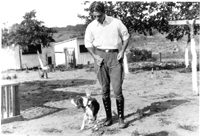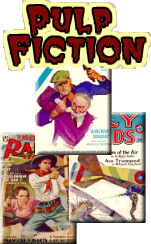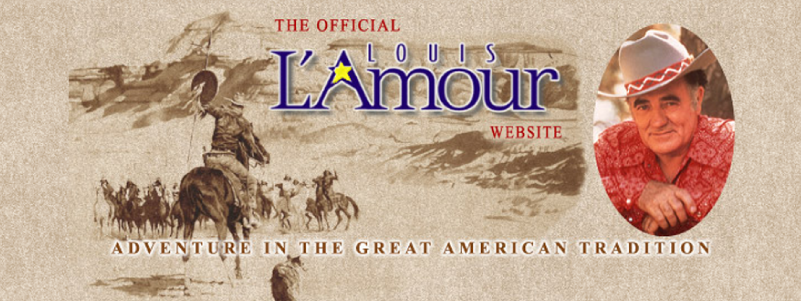Biography - III
 hough he
left school in the 10th grade Louis had a thirst for knowledge.
Throughout his life Louis haunted libraries and bookstores across
the country and all over the world. Often he went without meals
in order to afford to buy books. He sometimes worked long and
hard so that he could quit working temporarily and afford to
study full time. Louis liked to brag that from 1928 until 1942 he
read more than 150 non-fiction books a year and that in order to
do it he worked miserable jobs and lived in skid row hotels and
campgrounds.
hough he
left school in the 10th grade Louis had a thirst for knowledge.
Throughout his life Louis haunted libraries and bookstores across
the country and all over the world. Often he went without meals
in order to afford to buy books. He sometimes worked long and
hard so that he could quit working temporarily and afford to
study full time. Louis liked to brag that from 1928 until 1942 he
read more than 150 non-fiction books a year and that in order to
do it he worked miserable jobs and lived in skid row hotels and
campgrounds.

Choctaw, Oklahoma. Oak and
myself shortly after we arrived
from Oregon.
After several years in the Pacific Northwest, Louis' parents moved to a little farm that their eldest son, Parker, had purchased in Oklahoma. John had left Oregon a year before and had not been heard from since and so it was just the three of them who traveled across Idaho, Wyoming, Nebraska and Kansas to settle on the acreage outside Choctaw. They had a house, animals, occasional crops, and their lives returned to normal. They lived in a community in which they were not viewed as vagabonds . . . slowly the LaMoore family began to put down roots.
Louis always wanted to be a writer but in his early days he thought that his writing would take the form of poetry. For years he struggled to learn this craft without much guidance except his own intellect. Eventually, he broke out into a number of little magazines and began placing poems regularly. The name Louis L'Amour was seen in public for the first time. Poetry, however, didn't pay very well . . . in fact it didn't pay at all. He tried writing short stories that drew on his life experience, sending them to collage journals or literary magazines. This was not the answer to earning a living as a writer either. Finally, he sold a short story called "Anything for a Pal" to a pulp magazine called True Gang Life. He made less than eight dollars but he took it as a sign and committed his attention to writing for the pulps. The hoped for breakthrough took almost two years to come.

In 1937 he sold a short story called "Gloves for a Tiger" to Thrilling Adventures Magazine and, this time, other sales followed quickly. Although he wrote in several genres, including a rare western or two, Louis' most financially successful stories were the adventure tales he wrote about the captain of a tramp freighter and his crew. Ponga Jim Mayo, Louis' fictional character, was a merchant captain whose tendency to find trouble had drawn the attention of a British Intelligence officer. Together, Mayo and Major Arnold kept agents of the Axis powers off balance in the years leading up to WWII. Ultimately, Louis did place some material with literary magazines "The Admiral" (collected in Yondering) was published in Story, one of the most prestigious periodicals of it's day; "It's Your Move" (collected in Off the Mangrove Coast), "Survival," and "Glorious! Glorious!" (collected in Yondering) were published in Tanager; and "Dead End Drift" and "Old Doc Yak" (also in Yondering) were published in the New Mexico Quarterly. His poetry, originally seen in many anthologies and magazines, was self-published in a collection called, Smoke from this Altar.



